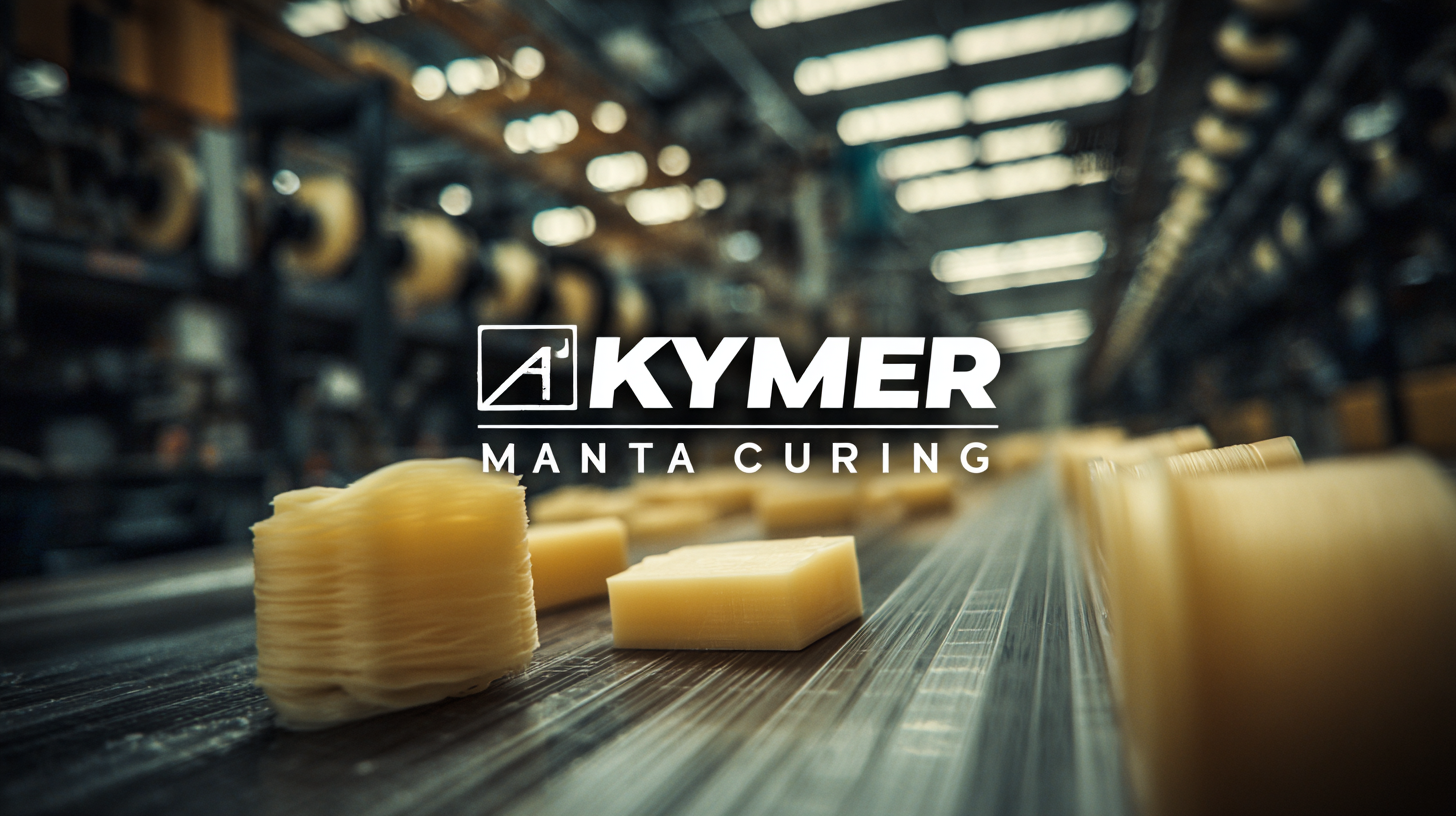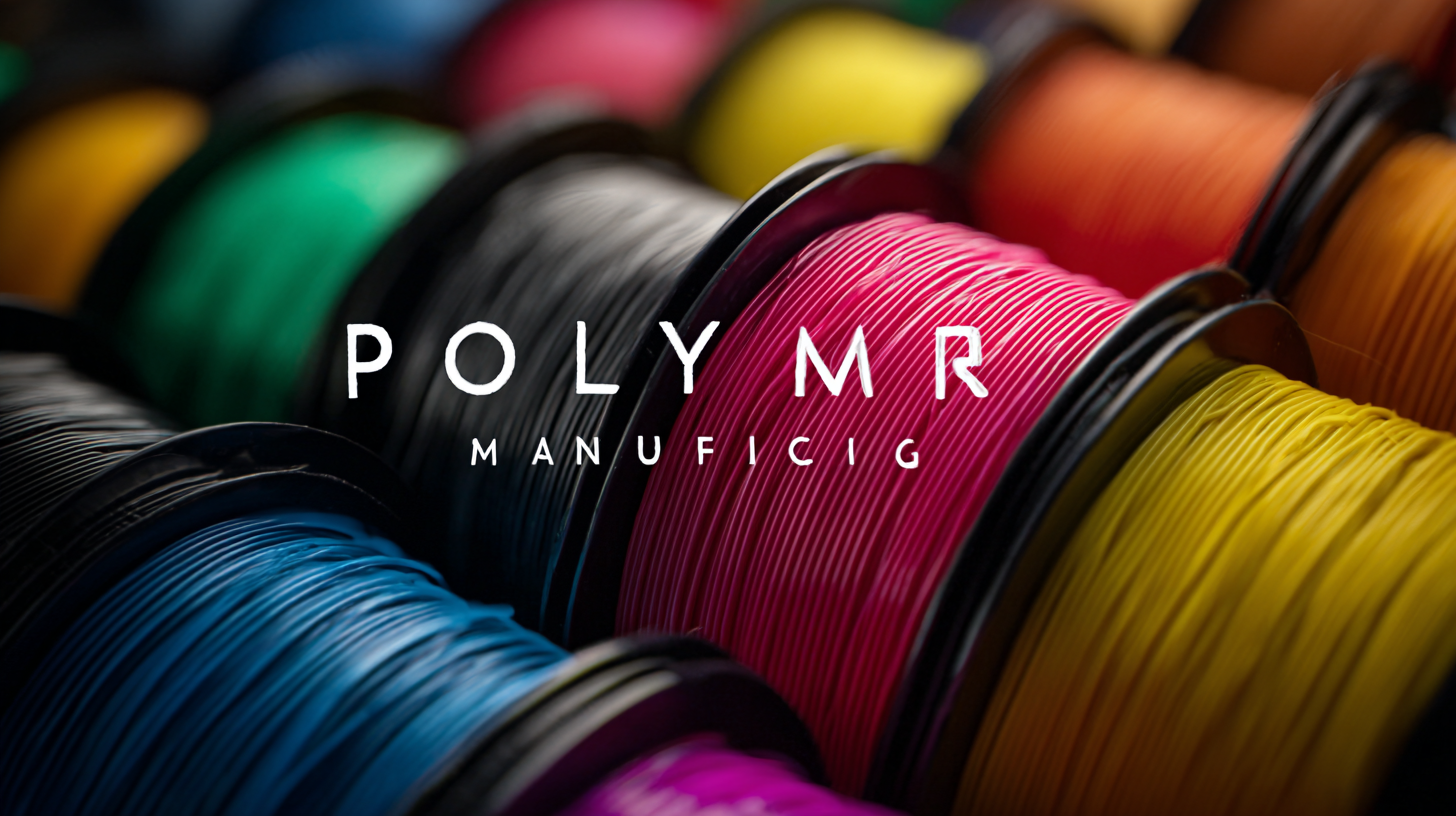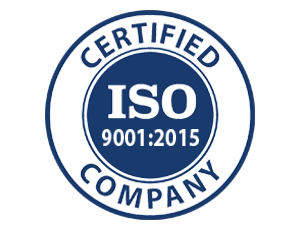Liquid Molding Monthly
5 Reasons Why Best Polymer Manufacturing Will Transform Your Industry
In the rapidly evolving landscape of modern manufacturing, the significance of Polymer Manufacturing cannot be overstated. According to recent industry reports, the global polymer production market is projected to reach over 500 million tons by 2024, driven by increasing demand across various sectors, including automotive, aerospace, and electronics. The versatility of polymers, coupled with advancements in manufacturing technologies, positions them as a crucial material for innovation and efficiency. With an estimated compound annual growth rate (CAGR) of 5.8% from 2021 to 2028, the industry is witnessing a transformative shift that is set to enhance product performance and sustainability. This blog will explore five compelling reasons why the best polymer manufacturing practices are poised to revolutionize your industry, championing not just productivity, but also environmental responsibility in the face of burgeoning global challenges.

Innovative Polymer Solutions: Driving Efficiency Across Industries
Innovative polymer solutions are revolutionizing industries by driving efficiency and reducing costs. According to a report by Grand View Research, the global polymer market is expected to reach $1.2 trillion by 2025, showcasing the growing demand for advanced materials that enhance productivity. Industries such as automotive and aerospace are increasingly adopting lightweight polymer components to improve fuel efficiency and reduce emissions. For instance, using polymer composites in automotive manufacturing can reduce vehicle weight by up to 60%, leading to significant savings in fuel consumption.
Moreover, in the packaging sector, innovative polymers are paving the way for more sustainable solutions. A study by Smithers Pira indicates that the global flexible packaging market is projected to reach $260 billion by 2024, driven by advancements in polymer technology that allow for recyclable and biodegradable options. These materials not only improve shelf life but also reduce waste, meeting the rising consumer demand for environmentally friendly products. By implementing these advanced polymer solutions, businesses can achieve greater operational efficiency and align with sustainability goals, ultimately shaping a more competitive landscape across various industries.
The Role of Advanced Materials in Reducing Manufacturing Costs
In recent years, the role of advanced materials has become increasingly crucial in reducing manufacturing costs, especially in an era of fluctuating tariffs and economic uncertainties. For instance, the recent imposition of tariffs on steel and aluminum underlines the importance of finding cost-effective alternatives to traditional materials. Advanced polymers present a promising solution; they are not only lighter and less expensive but also offer enhanced performance characteristics. By integrating these materials, manufacturers can mitigate the impact of rising costs associated with metal tariffs while maintaining competitive product pricing.

Additionally, funding initiatives aimed at fostering innovative manufacturing technologies underscore the push towards advanced materials. The U.S. Department of Energy’s significant investments in reducing the costs of large-scale manufacturing demonstrate a commitment to harnessing these innovations. As manufacturing processes evolve, industries are seeing tangible benefits like improved efficiency, reduced waste, and lower energy consumption through the adoption of advanced materials such as polymers. Especially in sectors like aerospace and energy, leveraging these materials can catalyze a transformation that not only cuts costs but also enhances sustainability, paving the way for a more resilient manufacturing landscape.
Boosting Sustainability: How Polymers Support Eco-Friendly Practices
In an era where sustainability is paramount, polymers play a crucial role in facilitating eco-friendly practices across various industries. These versatile materials can be engineered to reduce environmental impact, making them essential in creating products that are both durable and sustainable. For instance, biodegradable polymers are cutting down on plastic waste, breaking down naturally and minimizing harm to ecosystems. This shift not only helps in reducing landfill contributions but also encourages a circular economy, where materials are reused and recycled efficiently.

Moreover, the manufacturing processes of polymers are increasingly designed to be energy-efficient and less polluting. Innovative technologies are being developed to reduce carbon footprints, allowing companies to produce high-quality materials while adhering to environmental standards. By integrating sustainable practices within the polymer production process, industries can significantly lower their overall environmental impact. As more companies recognize the benefits of using eco-friendly polymers, the potential for transforming traditional manufacturing methods into greener alternatives becomes increasingly apparent. This paradigm shift highlights the critical role that polymers can play in a more sustainable future.
Enhancing Product Durability: Polymers as Game Changers in Performance
In today's fast-paced industrial landscape, the demand for durable and high-performance materials is greater than ever. Polymers are stepping up to meet this need, offering unique properties that enhance the durability of products across various sectors. From automotive components to medical devices, polymers are revolutionizing how manufacturers design and produce goods. Their inherent resistance to corrosion, chemicals, and extreme temperatures makes them ideal for applications that require long-lasting performance, thereby reducing downtime and maintenance costs.
Moreover, the versatility of polymers enables the development of innovative designs that were previously impossible with traditional materials. The lightweight nature of polymers not only improves fuel efficiency in transportation but also allows for more intricate shapes and structures in product design. As industries increasingly embrace sustainable practices, polymers offer eco-friendly alternatives, such as bioplastics, which further contribute to overall product durability and longevity. By incorporating high-quality polymer manufacturing processes, businesses can ensure that their products not only perform better but also stand the test of time, setting new benchmarks in performance and reliability.
Unlocking Customization: Tailored Polymer Solutions for Diverse Applications
In today's rapidly evolving industrial landscape, the demand for customized polymer solutions is reshaping various sectors, from automotive to healthcare. According to a report by Smithers Pira, the global market for polymers is projected to reach $1 trillion by 2025, highlighting the significant economic impact of tailored solutions.
Custom polymers allow manufacturers to meet specific performance criteria, such as enhanced strength, flexibility, or resistance to extreme temperatures, providing a competitive edge in increasingly specialized applications.
Additionally, the shift towards sustainability has led to a growing interest in biopolymers and recycled materials, which can be engineered to suit diverse industrial needs without compromising on quality. A recent study by MarketsandMarkets estimates that the biopolymer industry will grow at a compound annual growth rate (CAGR) of 20.8% from 2020 to 2025, demonstrating the increasing preference for eco-friendly alternatives.
By leveraging advanced polymer engineering techniques, manufacturers can unlock a realm of customization that not only meets regulatory demands but also responds to consumer expectations for environmentally responsible products.


100% Mercury Free
All of Hapco's formulations are completely free of Mercury.

50 Year Track Record
Hapco has been in business for over 50 years!
*NOTICE* Hapco will be will be closed on Monday, May 26th, in observance of Memorial Day. |
Privacy Overview
| Cookie | Duration | Description |
|---|---|---|
| cookielawinfo-checkbox-analytics | 11 months | This cookie is set by GDPR Cookie Consent plugin. The cookie is used to store the user consent for the cookies in the category "Analytics". |
| cookielawinfo-checkbox-functional | 11 months | The cookie is set by GDPR cookie consent to record the user consent for the cookies in the category "Functional". |
| cookielawinfo-checkbox-necessary | 11 months | This cookie is set by GDPR Cookie Consent plugin. The cookies is used to store the user consent for the cookies in the category "Necessary". |
| cookielawinfo-checkbox-others | 11 months | This cookie is set by GDPR Cookie Consent plugin. The cookie is used to store the user consent for the cookies in the category "Other. |
| cookielawinfo-checkbox-performance | 11 months | This cookie is set by GDPR Cookie Consent plugin. The cookie is used to store the user consent for the cookies in the category "Performance". |
| viewed_cookie_policy | 11 months | The cookie is set by the GDPR Cookie Consent plugin and is used to store whether or not user has consented to the use of cookies. It does not store any personal data. |


